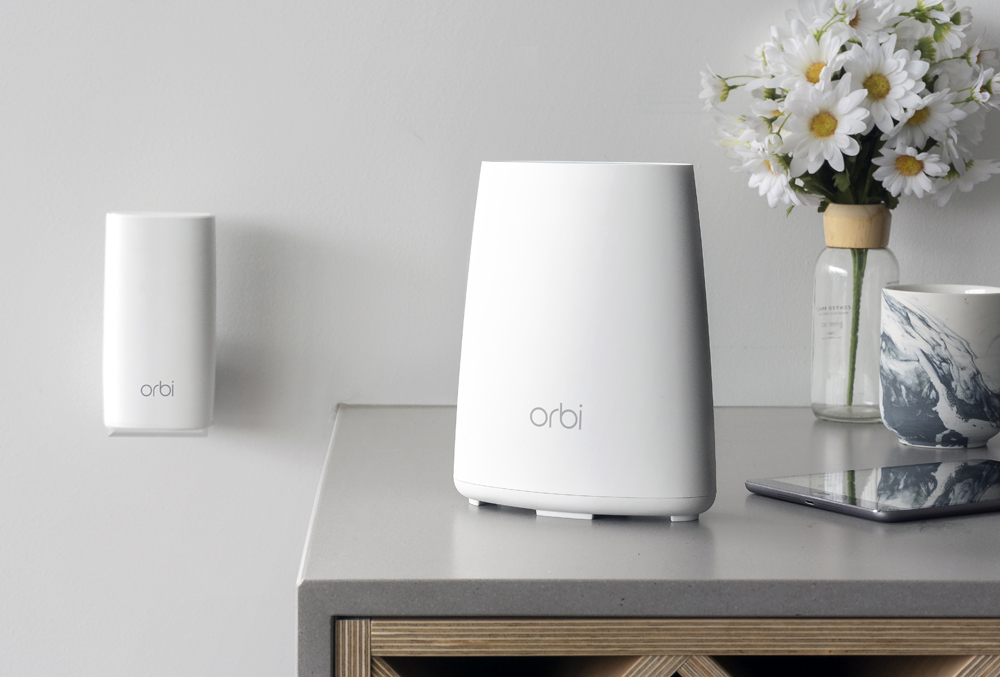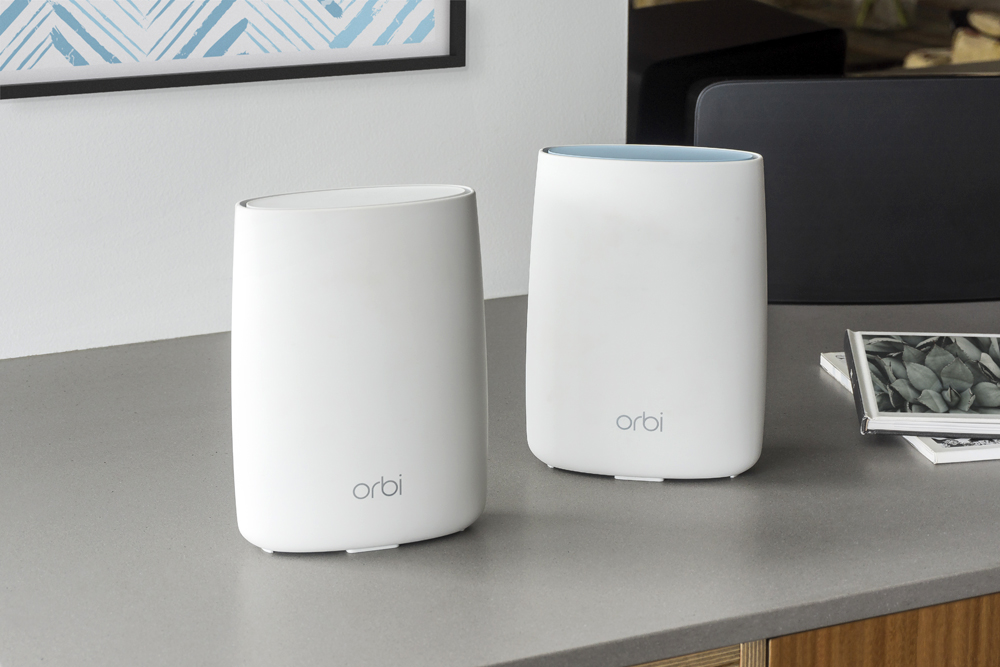Netgear Unveils Two Cheaper Orbi Mesh Routers
Netgear introduces two new Orbi mesh-router systems that aren't quite as expensive as the $400 flagship model.
Here at Tom’s Guide our expert editors are committed to bringing you the best news, reviews and guides to help you stay informed and ahead of the curve!
You are now subscribed
Your newsletter sign-up was successful
Want to add more newsletters?

Daily (Mon-Sun)
Tom's Guide Daily
Sign up to get the latest updates on all of your favorite content! From cutting-edge tech news and the hottest streaming buzz to unbeatable deals on the best products and in-depth reviews, we’ve got you covered.

Weekly on Thursday
Tom's AI Guide
Be AI savvy with your weekly newsletter summing up all the biggest AI news you need to know. Plus, analysis from our AI editor and tips on how to use the latest AI tools!

Weekly on Friday
Tom's iGuide
Unlock the vast world of Apple news straight to your inbox. With coverage on everything from exciting product launches to essential software updates, this is your go-to source for the latest updates on all the best Apple content.

Weekly on Monday
Tom's Streaming Guide
Our weekly newsletter is expertly crafted to immerse you in the world of streaming. Stay updated on the latest releases and our top recommendations across your favorite streaming platforms.
Join the club
Get full access to premium articles, exclusive features and a growing list of member rewards.
If you're considering a Netgear Orbi mesh Wi-Fi router system, but have been put off by the $400 price tag, you're in luck.
Netgear has just announced two less expensive Orbi sets that should be almost as powerful as their pricier sibling.

Each of the two new Orbi sets uses a smaller router unit than in the original model, but keeps the "tri-band" system that sets aside a high-speed radio band exclusively for communications among the Orbi units themselves.
The low-end RBK30 set, $300, pairs the smaller router with a satellite dongle that plugs directly into a wall socket, and covers up to 3,500 square feet. The mid-range RBK40 system, $350, has a satellite that matches the smaller router's size and shape and covers 4,000 square feet.
MORE: Best Wi-Fi Routers
The original Orbi set, the RBK50, which I guess we'll now consider the high end, costs $400 and covers 5,000 square feet. (You can get a three-unit original Orbi set at Costco for $450.)
The small router has four Ethernet ports (one for the modem connection), and the matching satellite on the mid-range system has four Ethernet ports as well. However, neither has a USB port, which means you won't be able to plug in a local printer or storage drive the way you should soon be able to with the high-end Orbi system (as soon as Netgear turns that USB port on).
Get instant access to breaking news, the hottest reviews, great deals and helpful tips.

We found the original Orbi set to be breathtakingly fast and very easy to set up. It's rated for AC3000 speed, meaning that it has a theoretical maximum throughput of 3,000 megabits per second (Mbps) on both the 2.4-GHz and 5-Ghz bands, although 1,733 Mbps of that is set aside for the "backhaul" communication between Orbi units.
The two new Orbi sets ratchet that speed down a bit, halving the backhaul to 866 Mbps while leaving the front-end communications unchanged. As a result, each is rated for AC2200 throughout, although as with all such ratings, real-life throughput will be much less.
That dedicated backhaul is important because most mesh-router systems use the same channels to communicate with each other as they do with the endpoint devices — laptops, smartphones, tablets, game consoles and smart TVs. Many systems dynamically switch between bands according to demand, but the result is often that the strength of the signal decreases with every "hop" away from the main router.

The Orbi and the rival Linksys Velop get around this by dividing the 5-GHz space into two bands, and setting one of them aside for backhaul only. The Orbi's backhaul channel is fixed, whereas the Velop switches between the two 5-GHz bands according to demand; in our lab tests, the two systems' speed results were similar.
All of the Orbi units are compatible with each other, and you can expand an existing Orbi system by adding satellite units. The plug-in dongle satellite adds an extra 1,500 square feet of coverage and costs $150 by itself; the small-tower satellite covers 2,000 square feet and costs $200 alone; and the large satellite that came with the original Orbi unit goes for $250 by itself and covers 2,500 square feet. Like the original Orbi system, and many other mesh-router systems, the Orbis can interact with Amazon Alexa smart-home voice-control systems.
Both the two new sets, as well as all the stand-alone satellites, are available for sale online beginning today (March 28).

Paul Wagenseil is a senior editor at Tom's Guide focused on security and privacy. He has also been a dishwasher, fry cook, long-haul driver, code monkey and video editor. He's been rooting around in the information-security space for more than 15 years at FoxNews.com, SecurityNewsDaily, TechNewsDaily and Tom's Guide, has presented talks at the ShmooCon, DerbyCon and BSides Las Vegas hacker conferences, shown up in random TV news spots and even moderated a panel discussion at the CEDIA home-technology conference. You can follow his rants on Twitter at @snd_wagenseil.
 Club Benefits
Club Benefits










